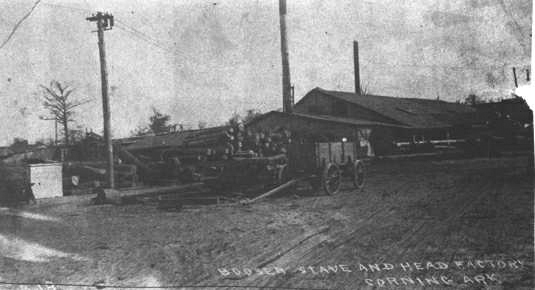
Booser Stave Factory, Corning, 1910

From the Clay County Courier:
"The Booser Stave Mill succeeded Brooklyn Cooperage that moved from Corning to Leslie. George Booser, a Bloomington, Indiana man, brought his family and some skilled workers along with him. The Weddle family became located in Corning by that method. To bring the timber from Black River Bottoms, Booser operated boats to ring rafts of logs to a landing bank on the West side of the stream. They were loaded on flat cars and hauled over a tram line that competed with the earlier fames [sic] Sawdust Pacific of the Ferguson-Wheeler Mill. The road spanned the upper reaches of Corning Lake with a trestle and the steam engine updated the Dinkie that hauled the Sawdust Pacific freight.
Later Booser moved the Sheeks-Stephens Plant from the original site in the Flour Mill at the corner of East Elm and East First and Corning had 2-4 hour electric service. A holocause [sic] in August 1914 destroyed the facility and Corning reverted to primitive living (coal oil lamps) until service was restored in 1915."
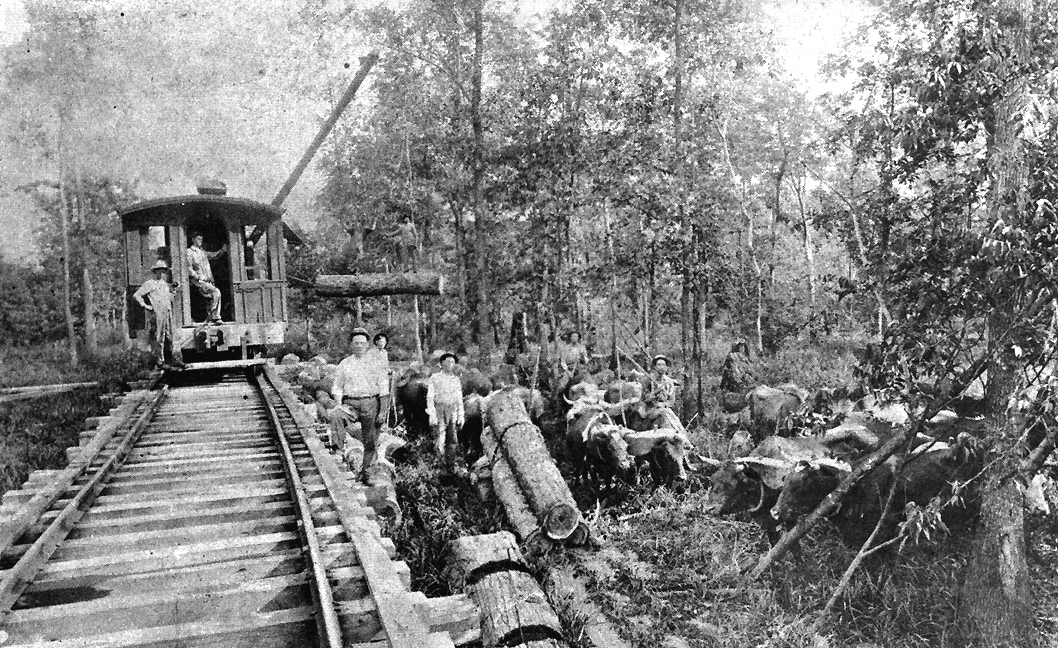
"The Booser Tram spanned the Corning Lake at the Northern end. The
tram was built around 1910 and George Booser, owner of the stave mill, poses on
the right of way in the foreground. Ox teams were necessary to haul the
timber to the right of way and picture shows several yoke of oxen on duty."
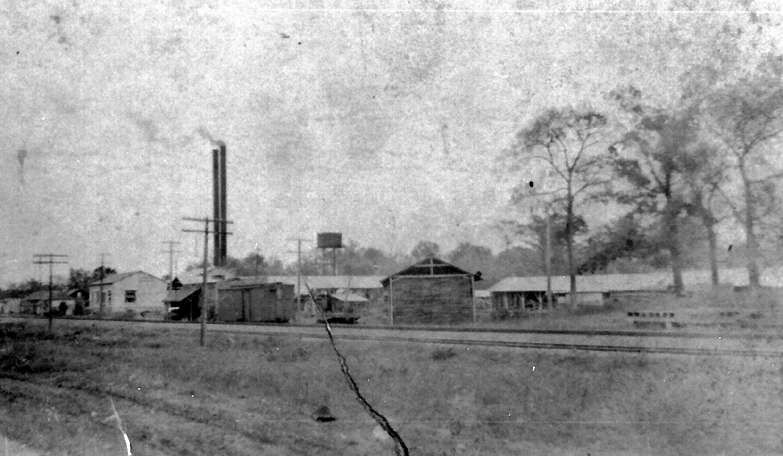
Booser Mill, Corning, AR.
“Booser Mill in Corning”. From
copy. (Akers).
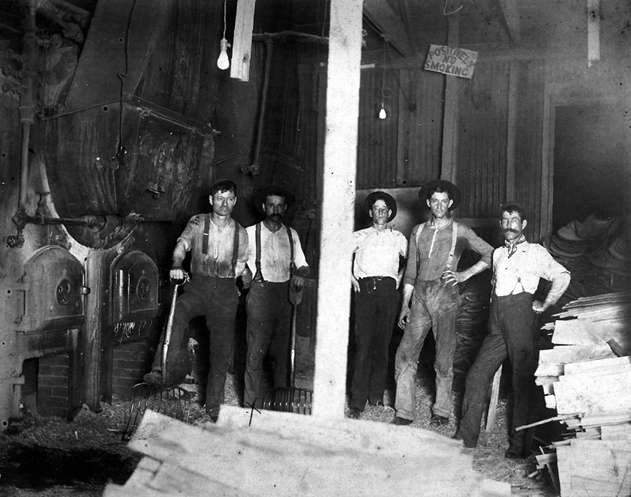
Booser Mill, Corning, AR.
“Grandpa Ousnamer, 1907”. Photo
stamped in ink, “E. Rainey of Mt. Vernon”.
(Daniel E. Moore).
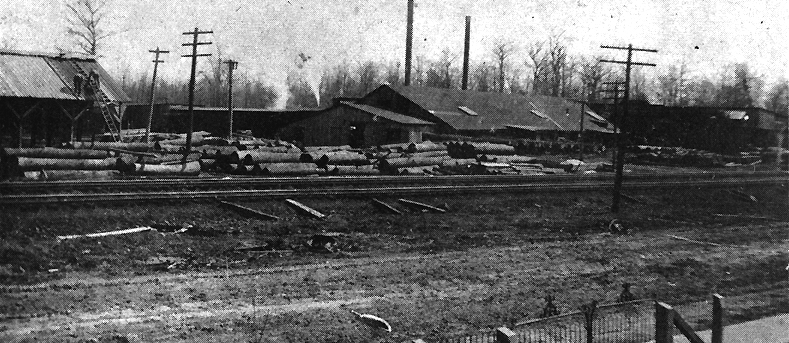
"The Booser Mill, across the Mo-Pac main line between Pine and Olive, was
Corning's main industry during the first decade. It succeeded the Brooklyn
Cooperate Mill that had been moved to Leslie. A spur had been built from
the site to a leading point on Black River and the logs on the log yard had been
brought in by rail to be in readiness for the Winter season when logging over
the mud roads would be impossible. Later Booser took over the local light
plant and operated it in connection [with] the mill, providing the town with 24
hour service for the first time in its history."
Submitted by Danny Moore